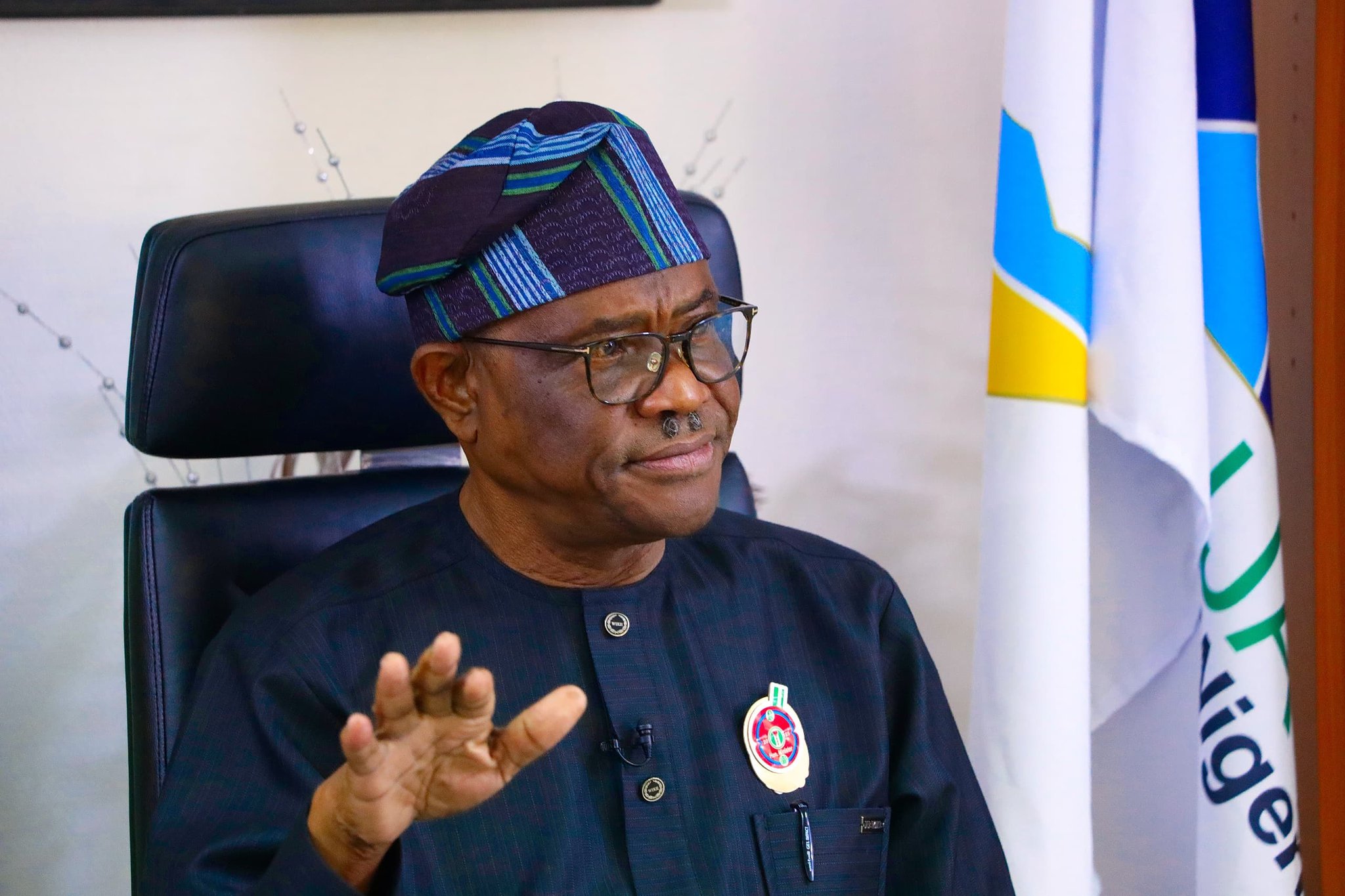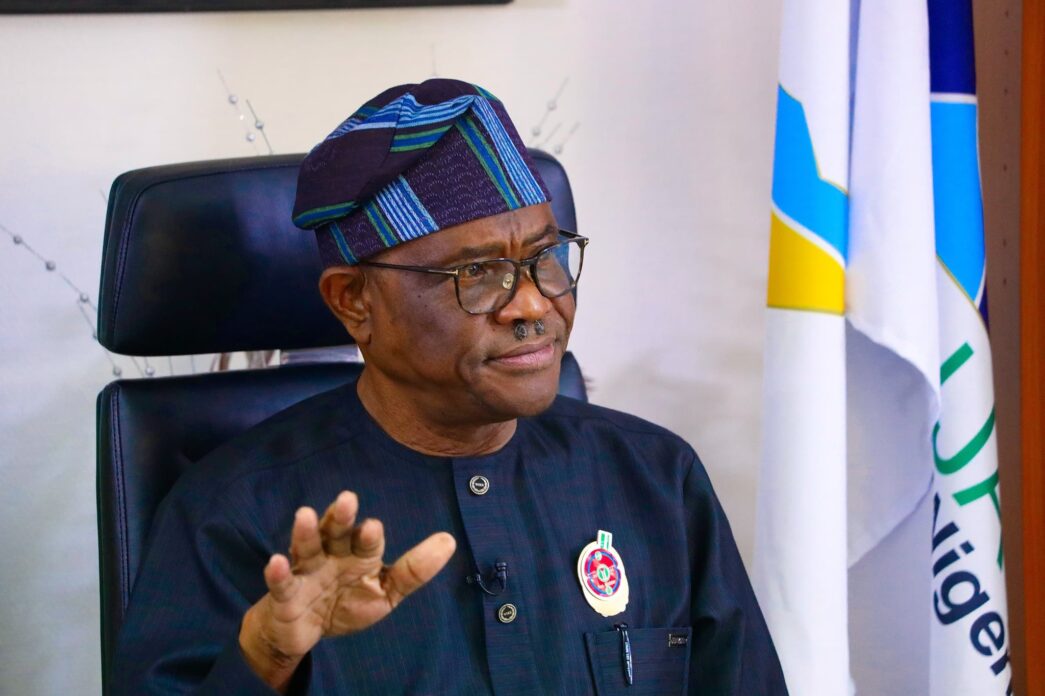BY SANI DANAUDI MOHAMMED
The political landscape of Nigeria has cast the former governor of Rivers state and now minister of the federal capital territory, Nyesom Wike, in a controversial light, yet a chorus across ethnic and partisan lines suggests that his portrayal as a foe is unwarranted and disproportionate. This article explores the origins of the animosity, the narratives that fuel it, and the implications for national cohesion. Media rhetoric, political manoeuvring, and sentiment are the reasons why many Nigerians from far distances view Wike not as a villain but as a scapegoat.
Political opponents cite Wike’s combative demeanour and his involvement in intra‑party disputes as justification for criticism, yet such critiques often ignore his backing for development projects. Sensationalist media magnifies isolated controversies, portraying him as a regional agitator while overlooking tangible contributions to infrastructure and social programs. This distorted portrayal nurtures the view that he is an adversary to many Nigerians, a narrative that appeals to disillusioned citizens searching for explanations amid the nation’s complex governance challenges.
The narrative that casts Wike as an unfairly feared foe reveals more about the state of Nigeria’s political discourse than about the man himself. Nigerians must distort sensational headlines and encourage nuanced debate to move beyond scapegoating and focus on substantive issues affecting the nation. As the 2027 elections approach, it is imperative that voters demand accountability, reject divisive rhetoric, and recognise that progress depends on constructive engagement rather than perpetual antagonism for national development.
Advertisement
Nyesom Ezenwo Wike was born on 13 December 1967 in Rumuepirikom, Obio‑Akpor, Rivers State, Nigeria. He hails from the Ikwerre ethnic group and is the son of Reverend Nlemanya Wike. Wike attended Government Secondary School Eneka, then earned a Bachelor of Laws from Rivers State University of Science and Technology, later completing Law School in 1997. He obtained a Master’s in Political and Administrative Studies, laying a solid academic foundation for his future political career.
Wike launched his political journey in 1999 when he was elected executive chairman of Obio‑Akpor Local Government Area, a post he held for two terms until 2007. His leadership earned him a reputation for infrastructural development and local governance. In 2011, President Goodluck Jonathan appointed him minister of state for education, and by September 2013, he became acting minister, overseeing national education reforms before resigning to pursue the Rivers state governorship in 2014.
In 2015, Wike won the gubernatorial election and assumed office on 29 May, serving two consecutive terms as Rivers state governor until 29 May 2023. His eight‑year tenure was marked by massive infrastructure projects, free education initiatives, and landmark legislation on women’s inheritance rights. After leaving office, President Bola Tinubu nominated him as Minister of the Federal Capital Territory in August 2023, a role he currently holds, steering Abuja’s development agenda for the nation and prosperity.
Advertisement
Since the 2015 electoral setback, Nyesom Wike has been tagged the lightning rod for every dispute that rattles Nigeria’s opposition, especially within the Peoples Democratic Party (PDP). Delegates at the PDP convention in Ibadan not only stripped him of party membership but also made him a symbol of strife that has plagued the party since its 2015 loss. Critics point to his confrontational style, yet many see expulsion as a motivated move to silence a voice.
Wike’s camp has challenged the legitimacy of the Ibadan convention, citing a Federal High Court judgment that halted the gathering. Despite the ruling, his loyalists attempted to block the event through legal avenues, but were rebuffed by the Oyo State High Court, which cleared the path for the convention to proceed. In a show of defiance, Wike praised his supporters for “defending the PDP” and reaffirmed his commitment to the party’s constitution, vowing not to betray those who stand with him.
The controversy surrounding Wike underscores his enduring influence within the PDP, even after the 2015 electoral defeat that left the party scrambling for relevance. Governors and party elders have urged reconciliation, warning that expelling prominent figures could deepen internal rifts ahead of the 2027 elections. Yet Wike’s loyal base continues to view him as a champion of the party’s grassroots, insisting that his leadership is essential for restoring the PDP’s lost momentum and national credibility.
Wike’s name dominates headlines because he wields a blend of political muscle and charisma that few rivals match. As Rivers State governor, he has controlled vast resources, turning patronage into a visible brand that resonates across the Niger Delta and beyond. His confrontations with party leadership amplify his profile, while his occasional generosity to opponents creates a paradox that keeps him in public discourse. Consequently, every controversy or alliance involving him becomes a talking point.
Advertisement
Many who now criticise Wike once rode on his funded campaigns, receiving cash, vehicles, or project contracts that cemented their careers. Former governors, senators, and even rival party members have acknowledged his support, describing it as a lifeline during electoral battles. This pattern of aid fuels speculation that his influence extends beyond Rivers, shaping alliances. Whether viewed as patronage or investment, Wike’s financial outreach ensures his name remains etched in the memory of the country’s class. Worthy of note is the darkness of the PDP that is fighting him today.
Wike is portrayed as the opposition’s heel, yet this view overlooks his pivotal role in sustaining the party during its moments. When the PDP was fractured and demoralised after 2015, his presence, resources, and influence prevented a collapse. Rather than being a liability, he acted as a stabilising force, rallying disaffected members and securing electoral footholds. Consequently, blaming Wike for the party’s woes misplaces responsibility on a leader who, at junctures, kept the organisation afloat.
The media campaign to tarnish Wike’s reputation consumes amounts of ink, clicks, and airtime, yet only a fraction of that intensity is directed toward highlighting his humanitarian deeds. If even two percent of the criticism were repurposed to showcase his contributions, such as funding schools, health clinics, and youth scholarships, many Nigerians might view him as a model servant.
Redirecting this energy could transform perception, turning a polarising figure into a truly celebrated champion of social progress. Wike may have his shortcomings and flaws, but he remains one of the best in the administration of President Bola Ahmad Tinubu GFRC, who is currently driving development in the Federal Capital Territory, as he has done in Rivers state. Making Nigeria great goes beyond rhetoric; the right must be done.
Advertisement
Amid criticism, we must remember that every human being is born to make mistakes, and Wike’s mistake should not be taken too personally only by those who forget his service. Yet the nation should not let an exchange eclipse the lives Wike has touched through scholarships, road projects, and health clinics across Rivers and the FCT. His detractors wield the spotlight like a weapon, but the gratitude of farmers, students, and market women speaks louder than headlines.
Let us honour a man whose passion for order sometimes spills into controversy, yet whose heart remains rooted in service, reminding us that leadership is measured by deeds, not scandal.
Advertisement
Danaudi writes from Bauchi via [email protected]
Advertisement
Views expressed by contributors are strictly personal and not of TheCable.

